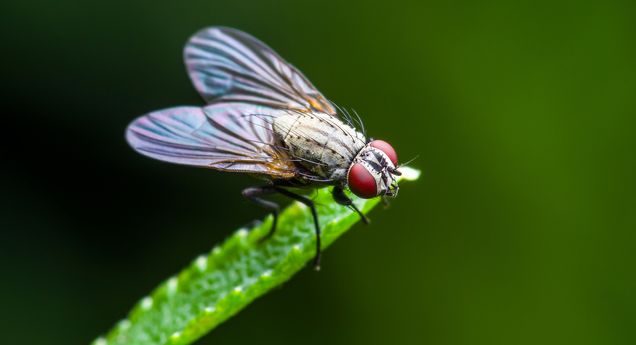Dr. Kim McCall Featured in The Brink

They’re the bane of summer picnics, the nemesis of busy kitchens. For most of us, flies are a seasonal annoyance, buzzing pests to be shooed, sprayed, or swatted. But to scientists, the insects are the ideal test subjects for studying a range of human diseases. What’s happening at the molecular level in their tiny bodies as they grow, age, and get sick closely mirrors what happens in ours—about 70 percent of human disease genes can also be found in flies. But they’re much less complex creatures, making it easier for researchers like Kim McCall to uncover valuable new insights into a host of chronic diseases.
McCall’s lab at Boston University is full of fruit flies. Tens of thousands of them, known as Drosophila melanogaster, are stored carefully in vials in a temperature-controlled room. McCall, a BU College of Arts & Sciences professor and chair of biology, studies Drosophila to better understand the molecular mechanisms that cause programmed cell death, particularly in the ovaries and brain. Cell death is a vital part of life in all animals, including flies and humans. It’s what enabled your body to develop in the womb—old cells making way for new ones—and what gives you a fighting chance against viruses as your body takes down infected cells. But it doesn’t always go according to plan.
Read the full Brink article here.